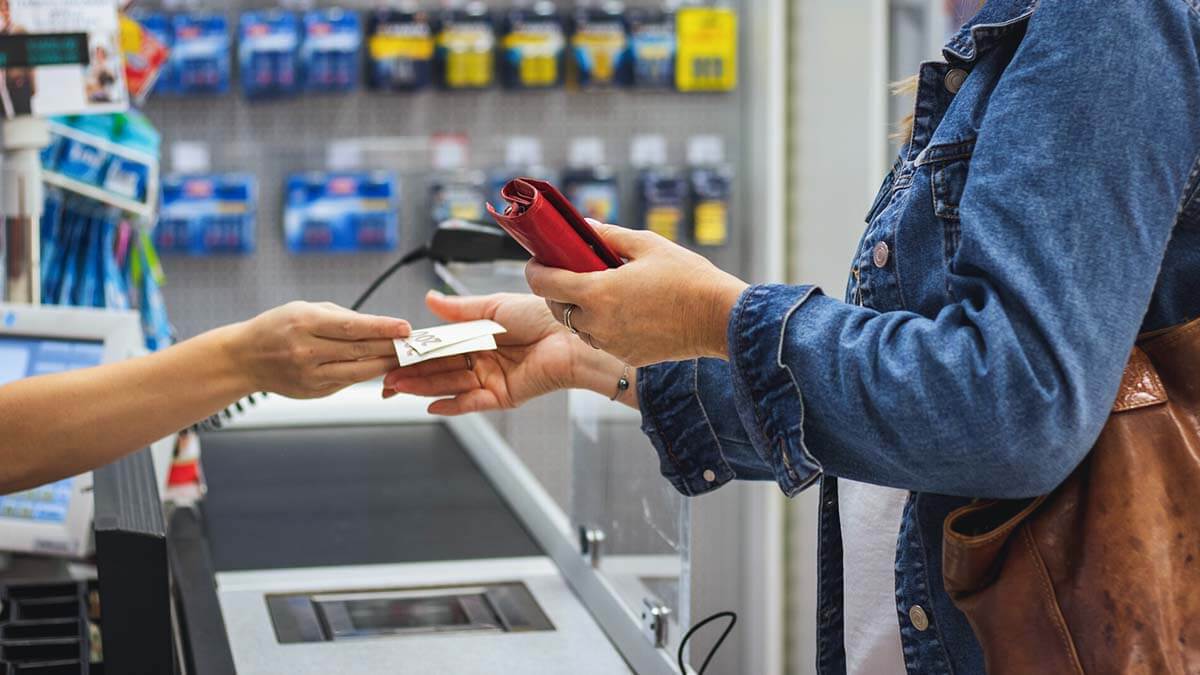According to one source, over 60% of small businesses don’t have a point of sale system in place. Does your business fall into 60%+? If so, your small company could be missing out on a smoother system and in-depth sales reports.
If you want to grow your business, efficiently track sales, and streamline your day-to-day operations, consider investing in a point of sale system. So, what is a point of sale system?
What is a point of sale system?
A point of sale (POS) system is where customers make a payment for goods or services at your store. Every time a customer purchases something at your business, you have a POS transaction.
A POS system serves as a hub for your business’s transactions. Everything from sales to inventory to customer management merges into your POS.
Typically, point of sale systems are a combination of software and hardware. Your POS system might have multiple physical components, such as a:
- Monitor
- Tablet
- Barcode scanner
- Credit card reader
- Receipt printer
- Cash drawer
The location of your POS system can be physical or digital. Brick-and-mortar stores are more likely to use a physical POS system. Most online businesses use a digital system to track sales.
If you own a brick-and-mortar store, you might need some (or all) of the above components for your daily business operations. And, you might strategically place your POS systems near impulse items to increase the chance of last-minute purchases as customers pay.
If you run an eCommerce business, you can still use a POS system. Some point of sale systems only accept online payments. An online-only POS system allows customers to input their card information to pay for their purchase. And as an online merchant, you might opt for a cloud-based POS system to help reduce startup costs and fees.
Benefits of a POS system
If you’re looking to streamline your business operations, a POS system is a good way to go. POS systems are chock-full of benefits for your small business.
You might be wondering, How can a point of sale system benefit my business? Or, you might be on the fence about getting a POS system and aren’t sure if it’s worth it.
Check out some of the advantages of having a POS system below:
- Helps automate the transaction process
- Tracks important sales data
- Shows sales patterns
- Catches price or cash flow discrepancies
- Monitors inventory levels
- Collects daily sales information
POS can help you manage other key components of your business, including inventory, employees, and customer relationships.
Choosing a POS system? Here’s what to look for…
Making a decision about a POS system for your business can be overwhelming. But, taking the time to do your homework on point of sale systems can really pay off. The type of POS system you need boils down to your business’s needs.
To help save your business time and money, look out for the following characteristics in a POS system:
- Security
- Detailed reports
- Easy-to-use
- Reliable
Security
Security is a must when it comes to picking out your POS system. Keeping your business and customer data safe should be at the top of your list when you’re on the hunt for a system.
When you are considering your options, be sure to inquire about the system’s level of security and whether it is up-to-date with the latest regulations.
Detailed reports
Most POS systems provide sales data to some degree. But when it comes to providing detailed sales reports, some systems blow others out of the water.
When looking for a point of sale system, find out what kind of reports are available. Make a list of the type of report data you need. You might want a report that can:
- Identify your best and worst selling items
- Show costs and price margins
- Track sales by department and item
Also, find out if you can export reports. With exportable reports, you can easily provide accounting information to your accountant or the person who manages your books.
Easy-to-use
No one wants a system that is difficult to use and hard to understand. When searching for a POS system, look for a system that strives for simplicity and effectiveness.
Your POS system should streamline your day-to-day operations, not hold your business back. To find out a POS system’s ease-of-use, read reviews online, watch videos, and see if a demo is available. If the system seems difficult to navigate and use, keep looking at other POS contenders.
Reliable
When looking for a POS solution, make sure the system is reliable. You don’t want to spend money purchasing a system and time learning it just for it to go kaput in a few years.
Take the time to do your research so you know if a system is worth your time, effort, and money.
Recapping POS systems
Now that you’ve learned what POS systems are and how they operate, let’s briefly recap what they should do for your small company. Physical POS systems can:
- Scan and count purchases
- Track inventory
- Attach a sale or transaction to a customer
- Track your customer’s purchasing history
- Capture customer information (e.g., name)
Keep in mind, POS systems can get pricey, especially if you’re looking for one that’s loaded with features. When searching for a point of sale system, keep your business budget in the back of your mind. Before implementing a POS system, think about:
- Startup costs
- Payment processing fees (e.g., credit cards)
- Software and hardware costs
Looking for a way to track your POS transactions? Patriot’s accounting software lets you quickly and easily record your income and expenses. Start your free trial today!
This article has been updated from its original publication date of November 14, 2019.
This is not intended as legal advice; for more information, please click here.
